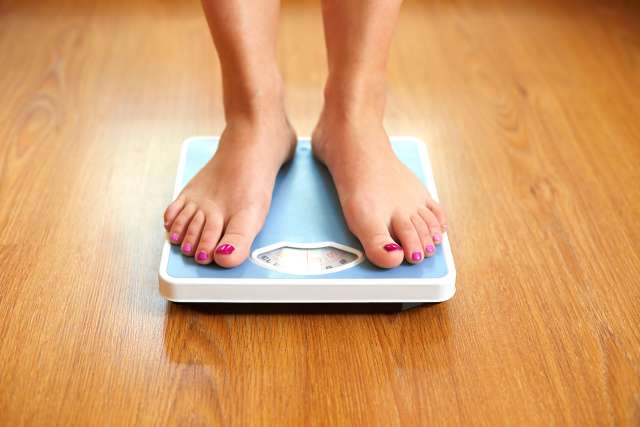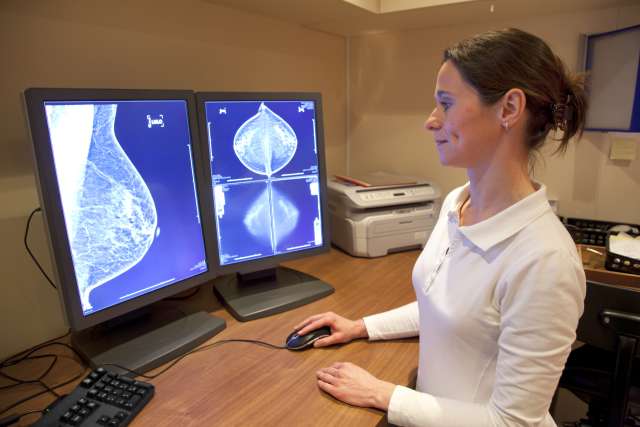Until she was 40, Emma Ridley Carter performed and taught dance and ate a healthy diet. She was just over 5-foot-2, and minus her three pregnancies, weighed about 110 pounds for most of her adult life.
“Then I retired and gave myself permission to eat the standard American diet,” said Carter, 52. “It was the worst decision I ever made.”
That included previously restricted foods such as bread, desserts and fast food. She went up to 150 pounds. She cut back to “living on a little piece of fish and some vegetables” and stayed active with yoga and hiking but Carter said the weight gain continued because of undiagnosed diabetes. Over the decade, she hit 220 pounds, and developed several health complications, including high blood pressure, insomnia and migraines.

Chronic digestive issues led to a consultation in early 2023 with , a gastroenterologist at UCLA Health. Dr. Mondragon prescribed semaglutide, which helped Carter shed 20 pounds over five months.
She also referred her to a colleague for another weight management option: , which helps patients with mild to moderate obesity, as well as those who experience weight gain after a previous .
Bariatric endoscopy is a newer procedure – practiced for about a decade – and is minimally invasive and typically performed in an outpatient setting.
“With endoscopy, there is no surgery, there is no incision, there are no scars,” said interventional gastroenterologist .
How it works
A long, flexible endoscope is inserted through the mouth. A stitching device at its end folds and sutures the stomach into a sleeve-like shape, reducing its volume by 70%-80%. Afterward, the stomach is not only smaller but empties at a much slower rate, a combination that cuts down feelings of hunger, leading to less caloric intake.
“The first three to six months, there's often an aggressive weight loss, but that weight loss can continue out to a year and remain off for years after that,” said interventional gastroenterologist .
also shows that these endoscopic procedures not only result in weight loss but improvements in metabolic markers such as blood pressure, blood glucose and cholesterol levels.
Like with any procedure, there are cautions. Dr. Issa said there is a 1%-2% risk of serious complications, such as bleeding or damage to organs near the stomach. About 30% of patients have post-procedure effects, including nausea, abdominal discomfort or constipation, which usually last a day or two.
Dr. Issa and Dr. Thaker, both assistant professors of medicine at the , stress that bariatric endoscopy is not a magic bullet.
Rather, it’s a kickstart to achieve weight loss and then the patient manages and sustains a healthy weight with diet and exercise. Patients are counseled at length, in collaboration with the (COMET) and the .
The approach is not one size fits all. Each person is assessed individually to determine what Dr. Thaker called the “right treatment for the right patient at the right time.”
“I can tell who’s going to be a successful patient,” he said. “They're not looking for the procedure to fix all their problems. They just need some extra help, and this is a nice big boost.”
Combination treatment
After her on a Friday morning, Carter mostly slept for the rest of the weekend. For seven days, she sipped various meat broths. Pureed and soft foods followed for the next two weeks, giving her body and her “brand new baby stomach” time to heal. Gradually she returned to the salads and raw vegetables she loves, and now follows a mostly Mediterranean diet.

“I am quite happy to leave more than half on my plate,” said Carter. “It's nice to not have that ravenously hungry feeling.”
A month after the procedure, Dr. Issa prescribed her a weight-loss medication, tirzepatide. In his ongoing research, he has found this “one-two punch” of bariatric endoscopy and medication to be more effective in weight loss than either approach by itself.
About a year after the procedure, Carter is down to 145 pounds. Her headaches are gone, her blood pressure is normal and her blood sugar is under control.
“I had all these huge T-shirts to cover me up when I was so big,” she recalled. “And then, going in reverse, I cleared out my whole closet. I'm back in the size small and I feel great.”
Reset button
Bren Chasse, LMFT, was close to 450 pounds and diagnosed as pre-diabetic. She underwent a gastric bypass surgery in summer 2016. It was a difficult recovery.
“I was out of work for six weeks and I was very, very sick,” said Chasse, 46, a psychotherapist.
The procedure helped her lose 150 pounds in less than a year, with continued weight loss until 2020. But some of the weight came back during the isolation of the pandemic.
Chasse explored a revision gastric bypass. Three surgeons refused to do it because additional removal of her bowel would likely result in long-term gastrointestinal impairment. That was when she was referred to Dr. Thaker for a procedure that would not require any bowel removal.
“The stomach is like a rubber band,” he said. “Over time, the stomach will stretch out after surgery. That's one of the reasons people gain some of the weight back.”
In summer 2023, Dr. Thaker performed to tighten Chasse’s stomach and hit the reset button on her weight loss journey.
This time, her recovery was much smoother. She had the procedure on a Friday and was back to work on Monday. For about two months, she only consumed liquids, and now has small meals, with protein as her priority. The 5-foot-9 Chasse is now down to 150 pounds.
“I was able to lose the rest of the weight,” said Chasse. “The (gastric bypass) was a step. But it didn't get me to the finish line. Dr. Thaker’s procedure helped me to achieve my goals.”
“Bren was one of those grand slam patients who knew exactly what she needed,” said Dr. Thaker. “She was very motivated and really demonstrated the power of taking the tool and running with it on her own.”






